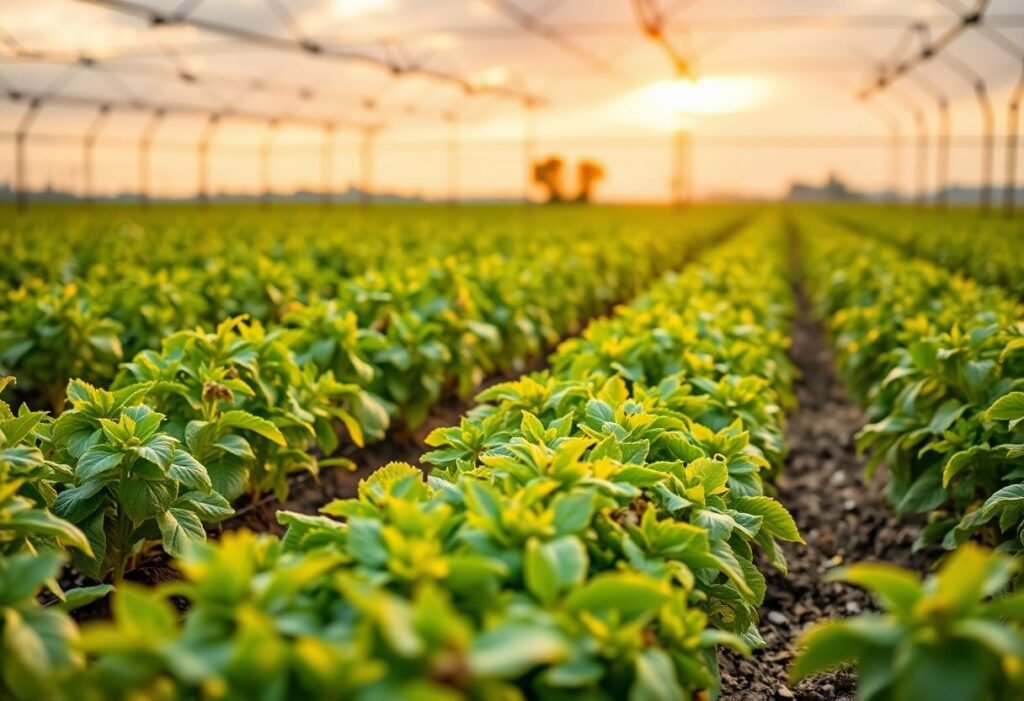Innovations in the Internet of Things (IoT) are revolutionizing smart agriculture, providing farmers with new tools and technologies that enhance productivity and sustainability. As global populations rise and environmental challenges intensify, these innovations represent a significant shift in how agricultural practices are implemented, offering farmers unprecedented control over their operations.
Smart Sensors Transforming Farming Practices
Smart sensors are at the forefront of the IoT innovations in agriculture. These devices monitor various environmental factors such as soil moisture, temperature, and humidity, which are critical for optimal crop growth. By collecting real-time data, farmers can make informed decisions, such as when to irrigate or apply fertilizers, leading to efficient resource use. The integration of these sensors into a comprehensive IoT platform allows for greater insights into crop health and environmental conditions, making it easier to manage large agricultural lands and reduce waste.
Drone Technology Enhancing Crop Management
Drones equipped with advanced sensors and imaging technologies provide a bird’s-eye view of agricultural fields. They can collect high-resolution images to assess crop health and detect pest infestations or diseases before they spread. The use of drones also facilitates precise mapping of agricultural areas, helping farmers plan their activities more effectively. When combined with AI analytics, drones can assist in predicting yields and optimizing soil health, thus enhancing overall farm productivity.
Automation of Irrigation Systems
Automated irrigation systems are becoming increasingly popular among farmers seeking to optimize water usage. These IoT-enabled systems utilize sensors to assess soil moisture levels and weather forecasts to determine the best times to water crops. This approach not only conserves water resources but also ensures crops receive adequate hydration. Additionally, farmers can control their irrigation systems remotely via smartphone apps, allowing for greater flexibility and responsiveness to changing conditions.
Data Analytics for Informed Decision Making
Data analytics plays a pivotal role in modern agriculture, enabling farmers to process large volumes of information derived from IoT devices. By applying machine learning algorithms, farmers can identify trends and patterns in their operations—leading to data-driven decisions that boost efficiency. This capability extends to predicting crop yields, identifying optimal planting times, and monitoring market trends, thereby allowing farmers to stay ahead of the competition.
Blockchain for Supply Chain Transparency
Blockchain technology offers a solution for enhancing transparency within agricultural supply chains. By recording each transaction and movement of products in a tamper-proof ledger, blockchain provides farmers, retailers, and consumers with greater trust in the food supply. This innovation allows for traceability, enabling consumers to verify the origin and safety of their food. As demand for transparency increases, integrating blockchain solutions in agriculture will become essential for maintaining brand integrity and consumer confidence.
Empowering Farmers through Mobile Applications
Mobile applications are revolutionizing how farmers access information and resources. From weather updates to market prices, these apps provide farmers with essential data that can influence their daily operations. Furthermore, many applications are designed to facilitate communication among farmers, enabling them to share best practices and solutions for common challenges. The accessibility and convenience of mobile technology empower farmers to make more informed choices, ultimately leading to enhanced productivity and sustainability in agriculture.
Disclaimer: The information presented in this article is for informational purposes only and should not be considered as professional advice.





















